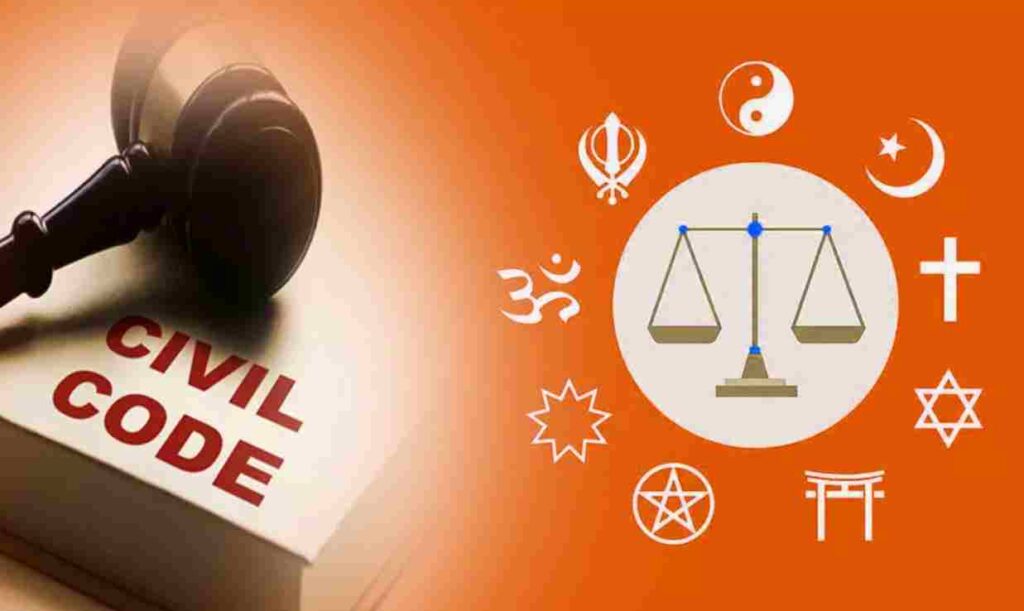Nithyakalyani Narayanan. V
The Uniform Civil Code (UCC) Bill was introduced by Uttarakhand Chief Minister Pushkar Singh Dhami, and it was passed by the state Assembly on January 7th, 2024. Uttarakhand became the first state in the nation to adopt a UCC, after receiving approval from the House. In place of the previous personal laws of every religion, the UCC introduces a common law for matters like marriage, divorce, property inheritance, and other matters.
Chief Minister Pushkar Singh Dhami described it as a “historic moment” for the nation and stated that both the ruling and opposition MLAs had a very important conversation about UCC on Tuesday and Wednesday. Dhami claimed that he had pledged in the run-up to the 2022 state assembly elections that the BJP would impose UCC across the state if they won – “This is a sacred land of gods, of Ganga and Yamuna, this is the land of soldiers who are serving across the country. So, for everyone living in Uttarakhand irrespective of religion and caste, we decided to bring UCC. And people blessed us. For the first time, BJP won assembly polls for the second consecutive term”.
The Uttarakhand government has cleared that the UCC will not apply to members of any Scheduled Tribes within the meaning of clause (25) of Article 366 read with Article 142 of the Constitution of India and the persons and group of persons whose customary rights are protected under Part XXI of the Constitution of India.
Key Points:
- The legal age of marriage is 18 for women and 21 for men. Both couples should also be in good mental health.
- In some cases, such as when the grandmother, grandfather, father, or mother are direct relatives, it will be illegal to be married.
- Within sixty days, all marriages must be recognised by the law. False information on the marriage registration carries a ₹25,000 punishment in addition to three months in jail. A fee of ₹10,000 is also required in the event that the marriage is not registered.
- A marriage cannot be dissolved without a court decree, and the perpetrator faces a three-year penalty. On the other hand, a marriage performed outside of the UCC’s defined parameters may result in a fine of up to ₹50,000 and a six-month imprisonment sentence.
- After the divorce plea is filed in one of the approved courts, the decree needs to be issued within sixty days. Both men and women will be entitled to maintenance and alimony. When family court orders are granted without consent, the Supreme Court accepts appeals.
- All live-in partnerships are required by law to register with the authorised registering authority. Live-in relationships where one partner is married or that fall under prohibited categories will not be accepted. All legal safeguards are granted to children of live-in couples.
- The other partner will be notified after the registrar if the live-in arrangement is ended. Authorities will decide that if a man in a live-in relationship leaves, he will be accountable for the woman’s maintenance.
- In the event that no recorded will is found, an equal share of the estate will pass to the deceased person’s close relatives. If there are no close relatives, the property would be equally divided among the second line, which would be the deceased person’s immediate first cousins on the paternal side. In the event that no one makes a claim, others would be invited to do so.
- Sons and daughters will have equal property rights, and the Hindu United Family (HUF) will have special protections under the legislation. The allocation of the property between claimants will be decided by a decision-maker designated by the state government.
Click here to access the Uniform Civil Code of Uttarakhand, 2024.


